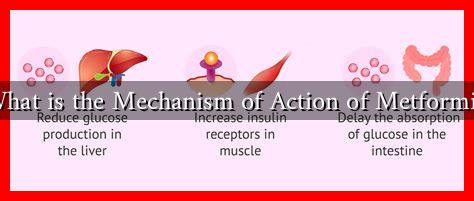-
Table of Contents
What is the Mechanism of Action of Metformin?
Metformin is a widely prescribed medication for the management of type 2 diabetes mellitus. It is often the first-line treatment due to its efficacy, safety profile, and additional benefits beyond glycemic control. Understanding the mechanism of action of metformin is crucial for healthcare professionals and patients alike, as it sheds light on how this medication works to improve blood sugar levels and offers insights into its broader implications for metabolic health.
Overview of Metformin
Metformin, a biguanide class drug, has been used for over 60 years. It primarily works by decreasing hepatic glucose production, improving insulin sensitivity, and enhancing peripheral glucose uptake. Its multifaceted approach makes it a unique and effective treatment option for managing diabetes.
Key Mechanisms of Action
The mechanism of action of metformin can be categorized into several key pathways:
- Reduction of Hepatic Glucose Production: Metformin primarily acts on the liver to reduce the production of glucose. It inhibits gluconeogenesis, the process by which the liver produces glucose from non-carbohydrate sources.
- Improvement of Insulin Sensitivity: Metformin enhances the sensitivity of peripheral tissues, particularly muscle and fat, to insulin. This leads to increased glucose uptake and utilization by these tissues.
- Activation of AMP-Activated Protein Kinase (AMPK): Metformin activates AMPK, an important energy-sensing enzyme. AMPK activation leads to a cascade of metabolic effects, including the inhibition of lipogenesis and the promotion of fatty acid oxidation.
- Alteration of Gut Microbiota: Recent studies suggest that metformin may influence gut microbiota composition, which can play a role in glucose metabolism and insulin sensitivity.
Clinical Evidence Supporting Metformin’s Mechanism
Numerous studies have validated the mechanisms through which metformin operates. For instance, a study published in the journal Diabetes Care demonstrated that metformin significantly reduces hepatic glucose output in patients with type 2 diabetes. Another research article in Nature Reviews Endocrinology highlighted the role of AMPK activation in mediating the metabolic effects of metformin, emphasizing its importance in improving insulin sensitivity and reducing body weight in diabetic patients.
Additional Benefits of Metformin
Beyond its primary role in managing blood glucose levels, metformin has several additional benefits:
- Weight Management: Unlike many other diabetes medications, metformin is associated with weight loss or weight neutrality, making it a favorable option for overweight patients.
- Cardiovascular Protection: Studies have shown that metformin may reduce the risk of cardiovascular events in patients with diabetes, likely due to its effects on lipid profiles and blood pressure.
- Potential Cancer Risk Reduction: Emerging research suggests that metformin may have a protective effect against certain types of cancer, particularly in patients with diabetes.
Conclusion
Metformin remains a cornerstone in the management of type 2 diabetes due to its multifaceted mechanism of action. By reducing hepatic glucose production, improving insulin sensitivity, activating AMPK, and potentially altering gut microbiota, metformin effectively helps control blood sugar levels while offering additional health benefits. As research continues to evolve, understanding the mechanisms behind metformin’s action will be essential for optimizing diabetes management and exploring its potential applications in other metabolic disorders.
In summary, metformin is not just a glucose-lowering agent; it is a comprehensive metabolic modulator that plays a significant role in improving overall health outcomes for individuals with type 2 diabetes. Its unique mechanisms and additional benefits make it a vital tool in the fight against diabetes and its associated complications.

